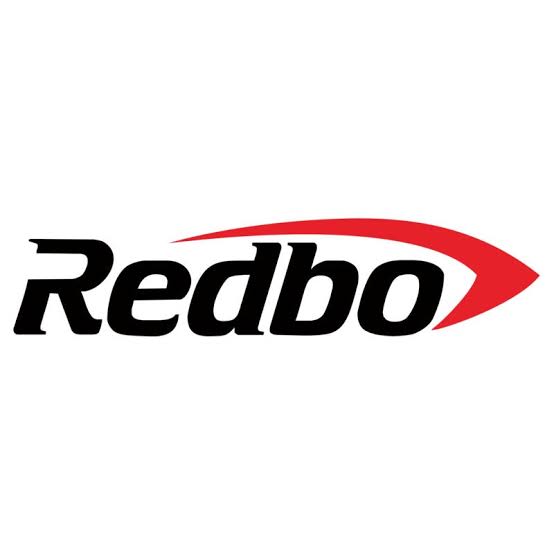Is 1xbet Legal in Australia? Understanding How Gambling Laws Vary Across States
When it comes to the legality of 1xbet in Australia, the answer is not straightforward. While 1xbet offers an appealing online betting platform, its legality depends on both federal and state regulations. Australia enforces strict gambling laws that vary significantly by state and territory, impacting whether platforms like 1xbet can operate legally within the country. This article explores the complex legal landscape surrounding 1xbet and explains how gambling laws differ from one Australian jurisdiction to another. Understanding these distinctions is essential for anyone interested in online betting through platforms like 1xbet.
Overview of Australia’s Gambling Regulation Framework
Australia has a dual approach to gambling regulation, combining federal laws with state and territory legislation. The primary federal act governing online gambling is the Interactive Gambling Act 2001 (IGA), which aims to restrict certain types of online betting services. The IGA specifically prohibits in-play online betting and the provision of interactive gambling services to Australian residents by unauthorized operators. However, offshore betting sites often operate in a legal gray area because they are not licensed by Australian regulators.
Each state and territory maintains its own regulatory body responsible for overseeing gambling within its jurisdiction. These authorities set rules on licensing, advertising, and restrictions to protect players and ensure responsible gambling. Due to these overlapping authorities, the status of international betting platforms like 1xbet can differ depending on where a player resides within Australia. The licensing requirement and enforcement rigor can also vary significantly, making it crucial to look at state-specific rules 1xbet.
Legality of 1xbet in Different Australian States
Since Australian states and territories have the power to regulate gambling independently, the legality of 1xbet isn’t uniform across the country. Generally, 1xbet does not hold an Australian license, which technically makes it illegal for them to offer betting services directly to Australian consumers. However, enforcement tends to target operators within Australia rather than punishing players who use offshore sites. Here is a breakdown of how some states approach platforms like 1xbet:
- New South Wales: Gambling is regulated by Liquor & Gaming NSW. While unlicensed offshore sites are technically illegal, players are not prosecuted for using services like 1xbet.
- Victoria: Similar to NSW, Victorian Commission for Gambling and Liquor Regulation oversees gambling. Enforcement mainly targets operators rather than end-users.
- Queensland: Authorities actively block some unlicensed offshore websites, but many sites including 1xbet remain accessible unofficially.
- Western Australia: Has strict gambling controls, but enforcement focuses on operators, with less impact on casual users of offshore platforms.
- Other Territories: Similar varying degrees of enforcement and regulation apply, with some taking a more proactive stance on unlicensed operators.
Overall, while 1xbet is not officially permitted or licensed in Australia, many residents still access the platform due to limited effective blocking mechanisms and the absence of direct penalties for players.
Impact of the Interactive Gambling Act (IGA) on 1xbet’s Operations
The Interactive Gambling Act 2001 is the cornerstone of Australia’s online gambling regulation. It prohibits the provision of certain interactive gambling services to Australians, including online casino games and in-play betting on sports. Importantly, the IGA focuses on the operators themselves rather than the users of the services. This means sites like 1xbet, if operating from offshore jurisdictions without Australian licensing, cannot legally offer services targeted at Australians. However, enforcement against offshore operators is difficult, allowing these platforms to continue serving Australian customers despite the regulatory restrictions.
The IGA also mandates internet service providers to block websites that offer prohibited interactive gambling services. However, the effectiveness of these blocks varies and many Australians find ways to circumvent restrictions using VPNs or alternative domains. This lack of comprehensive control makes it challenging for Australian regulators to completely prevent residents from accessing platforms like 1xbet, even though doing so breaches the law in principle.
Why Some Australians Choose to Use 1xbet Despite Legal Concerns
Despite the unclear legality, many Australians are attracted to 1xbet for several reasons. The platform often offers a wide range of betting options, including live betting, esports, and international sports markets that may not be available through locally licensed operators. Additionally, 1xbet frequently provides attractive bonuses and promotions to new users. Limited availability of licensed alternatives in some states also drives players towards offshore sites.
However, using unlicensed platforms carries significant risks, such as lack of consumer protection, potential difficulties withdrawing winnings, and exposure to scams or unethical business practices. Regardless, the convenience and extensive offerings of sites like 1xbet continue to draw Australian players despite the legal and regulatory uncertainties.
State-by-State Licensing: The Future of Online Gambling in Australia
Some Australian states are considering reforms aimed at better regulating online betting and incorporating offshore platforms under a comprehensive licensing regime. For example, Victoria and New South Wales have begun reviewing their laws to potentially allow broader online gambling options through licensed providers. This approach could reduce the demand for offshore sites by allowing legal, regulated operators to offer diverse betting services, ideally including features currently only available offshore.
Such licensing reforms would increase player protections, ensure fair play, and generate tax revenue for individual states. However, implementing these changes requires coordination between federal and state governments, and progress has been slow. In the meantime, Australians must navigate a complicated patchwork of rules when it comes to accessing platforms like 1xbet.
Conclusion
To summarize, 1xbet is not legally licensed to operate in Australia due to the country’s strict and segmented gambling laws, including the federal Interactive Gambling Act and diverse state regulations. While using 1xbet is technically illegal in Australia, enforcement is generally aimed at operators rather than individual users, which means many Australians continue to access the platform. The variation in state laws means the risk and availability of 1xbet differs depending on where the user is located within Australia. As reforms are discussed to potentially integrate offshore sites into a regulated market, the future may bring more clarity and legality to platforms like 1xbet. Until then, Australians should exercise caution and seek licensed platforms whenever possible.
Frequently Asked Questions (FAQs)
1. Is it illegal for Australians to use 1xbet?
Technically, using unlicensed offshore betting platforms like 1xbet is illegal under Australian law, but enforcement primarily targets operators, not individual users.
2. Why doesn’t Australia block access to sites like 1xbet completely?
While internet blocking measures exist, they are often difficult to enforce fully, and many users bypass restrictions using VPNs or alternative domains.
3. Are there legal alternatives to 1xbet in Australia?
Yes, Australia has several licensed online sportsbooks such as TAB, Sportsbet, and Betfair that comply with local regulations.
4. Can penalties apply to someone caught using 1xbet in Australia?
Penalties for users are rare and generally not pursued, but accessing unlicensed platforms carries some legal risk and no player protections.
5. How do gambling laws vary between Australian states?
Each state regulates gambling independently, leading to different licensing systems, enforcement priorities, and availability of gambling services.














